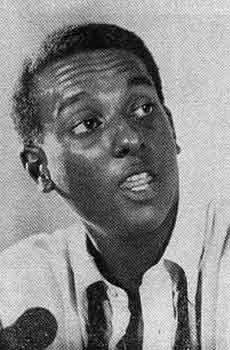They’re brainwashing us!
“It’s part of what we cherish most about friendships. And that’s precisely why the marketers are so keenly interested in them.”
In psychology, we've discussed about how the advertisers work. It was very interesting to read about. I knew that advertising was getting more invasive but I had no idea. Reading about it showed me how it’s actually a lot more sophisticated and sneaky then I thought it was. Advertisers get paid to figure out new ways to get into people’s heads. I never thought that subliminal messaging works but it must because the advertisers use it to their advantage very often, according to these articles.
“Marketers are teaching kids to view their friends as a lucrative resource they can exploit to gain products or money.”
Where do we draw the line? There has to be a line somewhere. What’s appropriate? When are they going to far? For me, I feel as if they’ve already gone to far. They’ve hired people to influence their friends just for the purpose of advertising. This invades personal privacy and it brings in the question about who can we trust? What can we trust? The article talks about “the Wholesome Halo.” Companies like PBS, which has a positive connotation, are being targeted by advertisers BECAUSE of their positive connotation. Schools also fall into the lure of the advertisers. Do the ends justify the means in this case? On one end, schools do need the money because of budget cuts, but on the other side of the argument, does that mean it’s okay?
“But since 1990, commercial activities in schools have expanded substantially, with an explosive rise in nearly all types of school-based marketing since 1997.”
Targeting kids is more dangerous than anything else because I don’t think they are old enough to make their own decisions. That’s why kids need to be around good influences when they are young because it will really influence the way they are when they grow up. However, with these new forms of advertisement everywhere, what are we going to do? Kids don’t know how to differentiate between what is good and what is bad. They don’t know if they are being advertised to or not. Kids are very naïve, and they’re not to blame. They’re young. I believe that media now makes it really hard for kids to learn how to make their own decisions. At this moment in time, all we need to do is look outside and media tells us what is cool and what isn’t. Where is our individuality? Where will it be for the future generations?
Where do our own opinions really start to form? This article reminds me of Wall-E where the people are constantly hooked up to a screen. Our generation is like this because we are constantly seeing what our society wants us to see. We are constantly being influenced to think a certain way. This is portrayed by this article and by the article we read the other day about hooking up. Media plays such a big role in our lives. When are we suppose to learn how to make up our own mind if we are constantly being pressured by everything else to sway in a certain direction?
I like our psychology class because I feel like I'm really getting challenged to think about the world around me and why people act the way they do. This is exactly what I came to the Summer Program at Brown for. I feel like I'm exercising my brain and doing so much thinking about the world and I decided that I wanted to share my insight with you all.

